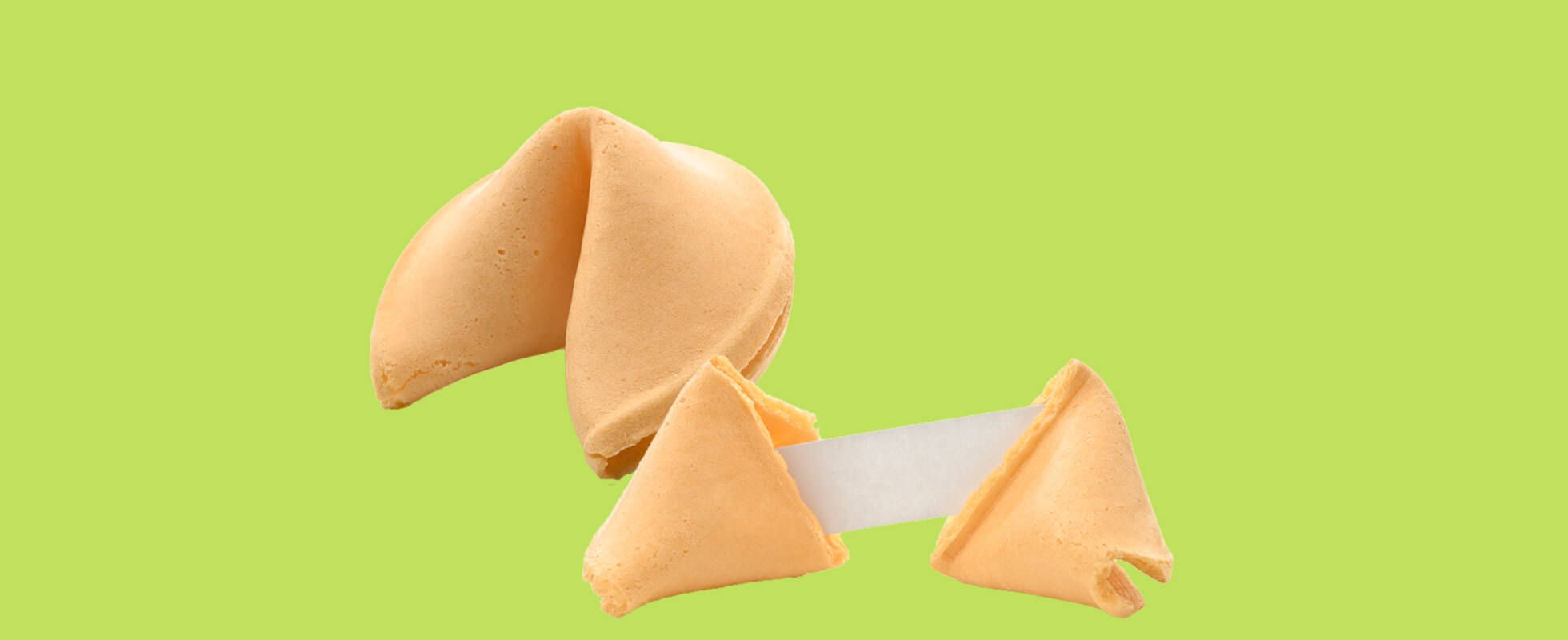In the United States, fortune cookies and their mysterious notes are a beloved part of paying the bill at Chinese restaurants. With hidden messages ranging from cryptic predictions to sage advice, these cookies have piqued our curiosity for decades.
But where do they come from? While these petite, butterfly-shaped sweets are indeed a Chinese-American food staple, their introduction to the West actually traces back to Japan, and Japanese immigration to America.
A FORTUNATE TRADITION
The closest ancestor of this popular confection is the nearly identical Japanese tsujiura senbei, or “fortune cracker.” Dating back to the early 19th century, these nutty sesame and miso tea cakes hide a wise saying or prophecy on a slip of paper tucked inside. The snacks traveled to the U.S. with the surge of Japanese immigration to the American West Coast in the late 1880s and early 1900s, and San Francisco quickly became a hub for Japanese American culture.
Many Japanese immigrants in California owned Chinese chop suey restaurants, and they often served the traditional tsujiura senbei. As the cookies grew more popular, they became mass produced and evolved to the sweeter vanilla flavor we know today.
During World War II, American military personnel who had passed though San Francisco began to request fortune cookies at their local Chinese restaurants back home, and the dessert’s popularity spread across the country. In the 1950s, more than 200 million cookies were being manufactured annually.
Wonton Food in New York became the largest producer of fortune cookies in the nation, and today it makes more than 4 million cookies daily. Of course, that also means it pumps out millions of tiny fortunes stashed inside the crunchy snacks — and all those words of wisdom have to come from somewhere.
MYSTERIOUS MESSAGES
As of 2017, James Wong, whose family founded Wonton Food, has written fortunes for the company, which has a database of more than 10,000 messages. The majority of the messages are reused, while around 100 or so original notes are written each year. (In contrast, there’s a traditional bakery near Kyoto, Japan, that has used the same 23 fortunes in its cookies for decades.)
In an interview with the BBC, Wong said it can be challenging to write universally pleasing and uplifting sentiments. “We need to bring happy messages. We want to make people feel good,” he said. “And, there’s always an expectation of some type of fortune-telling.”
Over the years, fortune cookie message writers have dolled out advice, encouragement, life predictions, and comic relief. They often rely on famous quotes, but without attributing the original author.
You may crack open a note encouraging, “Have patience. All things are difficult before they become easy,” which is a line from the Persian poet Saadi Shirazi. Or you may be warned, “Nothing is so much to be feared as fear,” written by Henry David Thoreau. Many fortunes quote the ancient Chinese philosopher Confucius, such as, “What you do not want done to yourself, do not do to others.”
THE SNACK EVOLVES
Over the years, the inspiration for Wonton Foods’ fortunes have come from diverse sources, ranging from Chinese proverbs to New York City subway signs. Along with James Wong, the company has outsourced some fortune writing to freelance writers, as well. Aside from head writers like Wong, most fortune cookie writers are part-time contractors.
CEO Norman Wong told CNN that his family aims to integrate traditional Chinese principles into modern cookie messages. He hopes the opinionated treats will encourage meaningful discussions between family members and friends. Yang's Fortunes, Inc., another notable player in the fortune cookie realm, also integrates Chinese proverbs into their dessert notes.
These days, the cookies conceal humorous notes and witty quips along with the more traditional advice and predictions. Fortune cookies might playfully admonish the reader with a message of, “I cannot help you, I am just a cookie,” or they may offer a mix of humor and flattery, complimenting you as “the crispy noodle in the salad of life.”
Custom fortune cookies have also emerged over the decades, offering personalized, targeted, or funny messages. They’ve been vehicles for everything from marriage proposals to political slogans. “You’ll be called to execute good judgement. Vote KENNEDY,” read a 1968 cookie message from Robert F. Kennedy’s presidential campaign. In 2020, a nonprofit cookie promotion supporting the U.S. census stated: “Don't count calories. Be counted. Census 2020.”
The humble fortune cookie continues to evolve, and in the end, not knowing what’s in store for us is exactly what makes them such a treat.
Featured image credit: chictype/ iStock
















